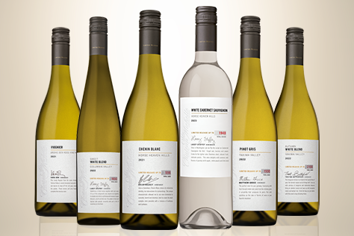The point I was making was that if it isn't Spanish, it isn't Sherry and so forth. The best description for "American Madeira" would be something like "American Madeira-style fortified wine". And no, I haven't tried the American version.
Now, I'm curious. I feel I will buy sherry and the Washington copy and see what is los t in translation, if anything.
I'm in somewhat of agreement, as I think Parmesan cheese, Champagne, and Vidalia onions all should own their names, even when prestige may supplant actual quality. I'm certain good sparkling wines are made even though not Champagne. I've also had sparking wines as bad as wine can be.
What's the problem with that? Are American teachers not allowed to mention alcoholic drinks to under-21s? By the same principle, they would not be allowed to mention sexual intercourse to under-16s or driving motor vehicles to under-17s! It's not as if a class of rampaging teenagers would decide after a lesson like that to switch from their habitual agenda of glue sniffing and masturbation to an evening of fine wines.
Few colleges would care, even sectarian ones. High school teachers would very likely be counseled and/or disciplined for discussing sex in any way outisde a biology, sociology, psychology, or sex-ed class. Reactionary parents, even though likely a minority, can quickly spin innocent remarks into accusations of age-inappropriate converesations, including accusations of fraternization, etc.
So, typically seondary schools stick to the straight and narrow on content, and could even discipline a teacher if the perceived straying was serious enough. Local school boards have a great deal of power, and school principals and superintendents are pain-averse for the most part and few are willing to die on the hill of intellectual freedom.
Different systems have different standards. The first school where I taught, teachers were not allowed to "sit on our desks", meaning to lean back or even sit atop the edge to be less authoritarian and more approachable. Imagine that.




 Maybe you should lay in some Cyprus Sherry and possibly some English Champagne too.
Maybe you should lay in some Cyprus Sherry and possibly some English Champagne too.
